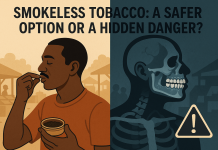If you are like me, you would have wondered why people keep abusing drugs. They know it is harmful to them. They realize it when they are sober, yet they would go back and sniff that “stuff” or go back to inject themselves. Well, if you were like me, you would think that drug addiction is something an addict should be able to stop just by willpower. However, let me burst your bubble. Drug addiction is not just a social problem. Neither are addicts necessarily morally weak individuals. Rather, drug addiction is a disease.
The truth is that drug addiction is a disease that affects the brain. Stopping abuse of drugs is not as easy as making a decision to stop. Drug addiction is a chronic, often relapsing brain disease that causes compulsive drug seeking and use, despite harmful consequences to the addict and those around them. It leads to changes in the structure and function of the brain. Although, the decision to take drugs is voluntary, repeated drug usage causes changes in the user’s brain. This affects self control, ability to take sound decision and creates the impulse to take drugs. To further illustrate this point, brain imaging studies of drug-addicted individuals have shown changes in areas of the brain that are critical to judgment, decision-making, learning and memory, and behavior control. It is these changes to the brain that makes it difficult for someone hooked to drugs to stop.

So what happens when someone takes drugs? To start with it, you need to understand that drugs are chemicals that “hack” into the brain’s communication systems. They disrupt how the nerve cells send, receive and process information. How do they do this? Some drugs like heroin and marijuana have a similar structure to the neurotransmitters produced by the brain. These chemicals then fool the brain’s receptors and activate nerve cells to send abnormal messages. Other substances like methamphetamine and cocaine incites the nerve cells to release abnormally large amounts of neurotransmitters. They could also prevent the brain from recycling these brain chemicals, which is needed to shut off the signal between neurons. This disruption amplifies the neural message that ultimately disrupts normal communication patterns.
The effect of this disruption is that the brain is flooded with dopamine – the neurotransmitter that control the brain’s reward and pleasure centers. The overproduction of dopamine produces euphoric effects in response to drugs. This response is responsible for the repeated use of the drug as the abuser wants to keep experiencing the “euphoria of pleasure.” As a person continues to abuse drugs, the brain adapts to the increased amounts of dopamine. This is by producing less dopamine or reducing dopamine receptors. The addict must therefore keep abusing drugs to bring his or her dopamine function back to ”normal” or use more drugs to achieve a dopamine high. This effectively keeps the user asking for more. Sad, right?
How do you think you can help those having this disease? Please answer or leave a comment below. You have questions? Feel free to ask here; a doctor is waiting to answer on the other side.










Comments are closed.